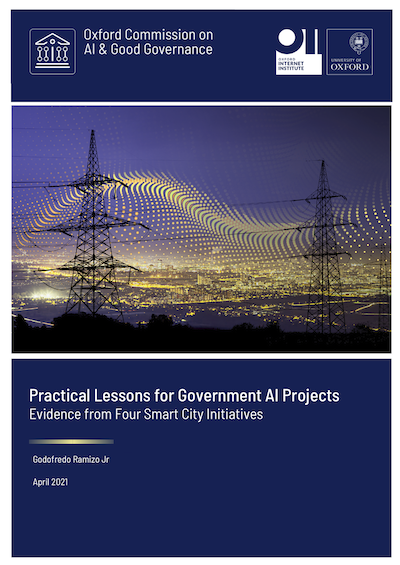
Godofredo Ramizo Jr
Former Research Associate
Godo was an OII DPhil Student interested in platform economies, on-demand ride-hailing platforms in Southeast Asia, governance reform, and the developmental impact of technology.

Governments around the world are launching projects that embed artificial intelligence (AI) in the delivery of public services. How can government officials navigate the complexities of AI projects and deliver successful outcomes? Using a review of the existing literature and interviews with senior government officials from Hong Kong, Malaysia, and Singapore who have worked on Smart City and similar AI-driven projects, this report seeks to demonstrate the diversity of government AI projects and identify practical lessons that help safeguard public interest.
After laying out a classification of government AI projects, the author offers five practical lessons. For example, the report suggests rigorous multi-step evaluation processes, as well as management of cybersecurity, and confidentiality in ways that protect national interest and individual privacy, and also win public trust. The report underlines how government AI projects involve more complexity and novelty than others. To meet these challenges, governments need to take certain considerations and frames of thinking into account, which are specific to AI projects.
